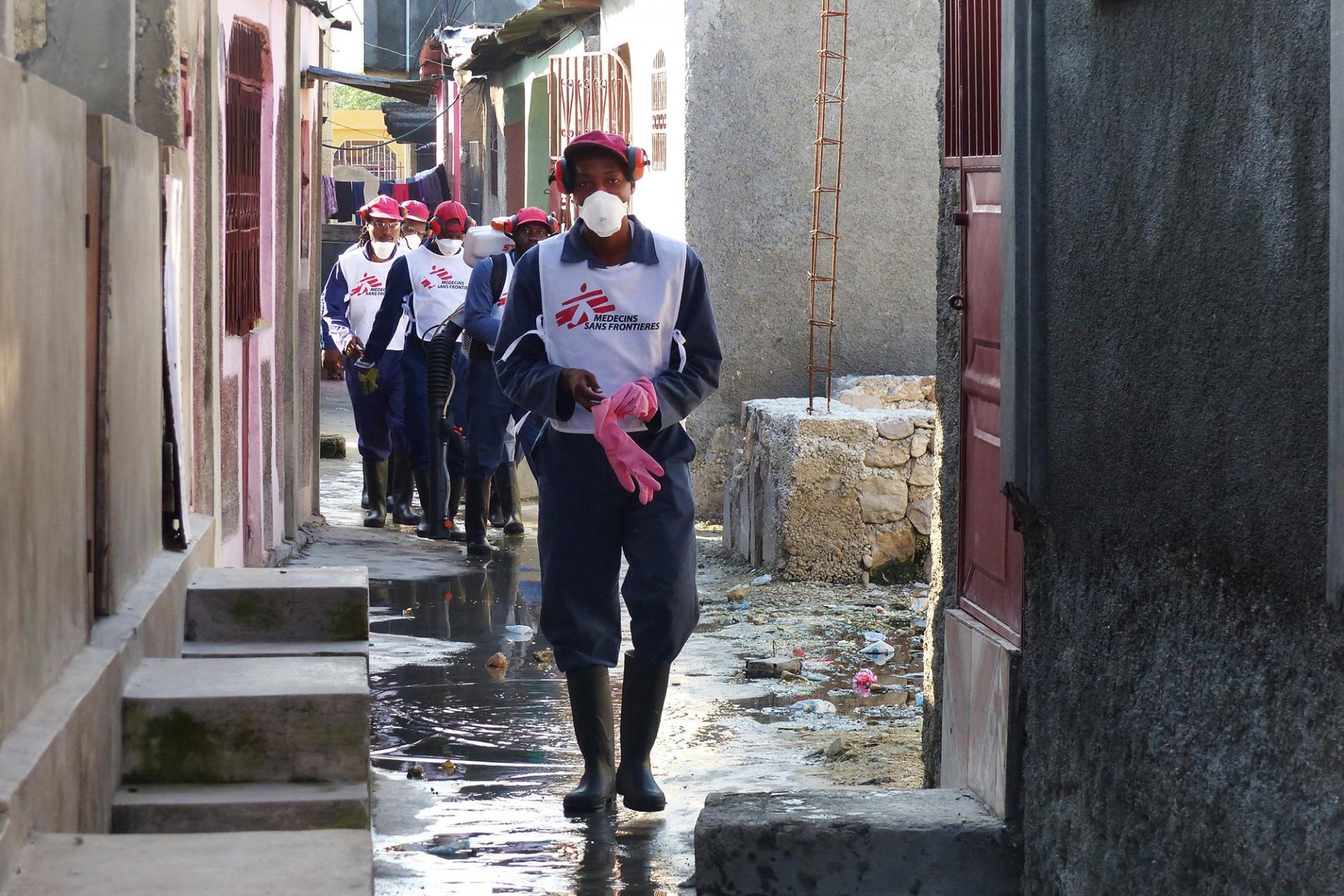Water, a source of life, can become a cause of disease for the most modest Haitians who don’t have access to good sanitation.
In Port-au-Prince, MSF is working to improve water quality for slum-dwellers in a bid to protect the population from cholera and mosquito-borne viruses like zika, dengue and chikungunya.
Innovations bring their share of surprises that can create frictions in a team. “The pharmacist freaked out a bit when I asked if I could put my mosquitoes in his fridge.
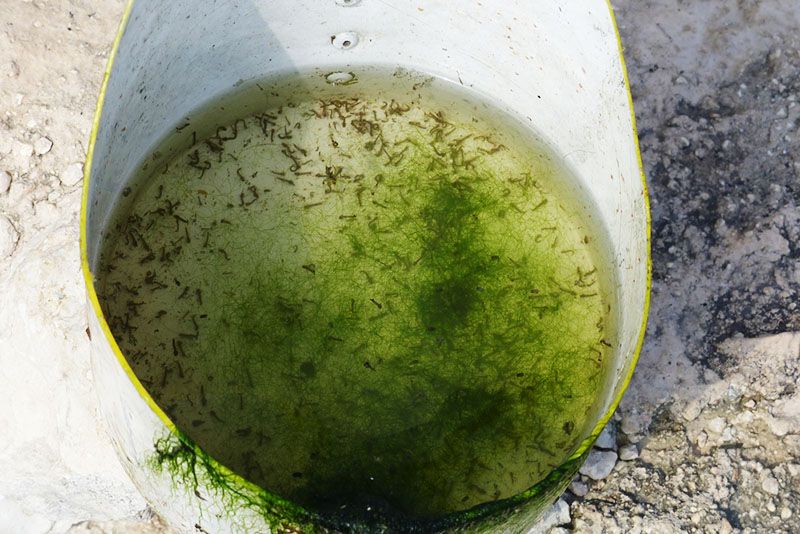
He said: “What is that, food? The protocols say that we can’t store food here”, says Pierre Trbovic, coordinator of the Marengwen project, that translates as “mosquitoes” in creole.
OK then, from January to June, the strange containers where swarms of mosquitoes slowly froze to death ended up in the canteen’s fridge, next to the team’s lunch boxes. One more improbable area in Haiti colonized by the minuscule scourge.
In the brutal heat of the Caribbean, houses are designed to let the breeze in, not keep mosquitoes out, so the 260.000 people living in the matchbox houses of Martissant, one of the country’s largest slums, are a tasty buffet for the Aedes mosquito.
It lays its eggs in water pooling on abandoned tires, discarded beer cans, or other favorite locations like the large puddles of unauthorized dump sites.
And the more its population grows so does the risk of potentially lethal diseases: dengue fever, chikungunya and the newest epidemic sweeping through the Americas – zika.
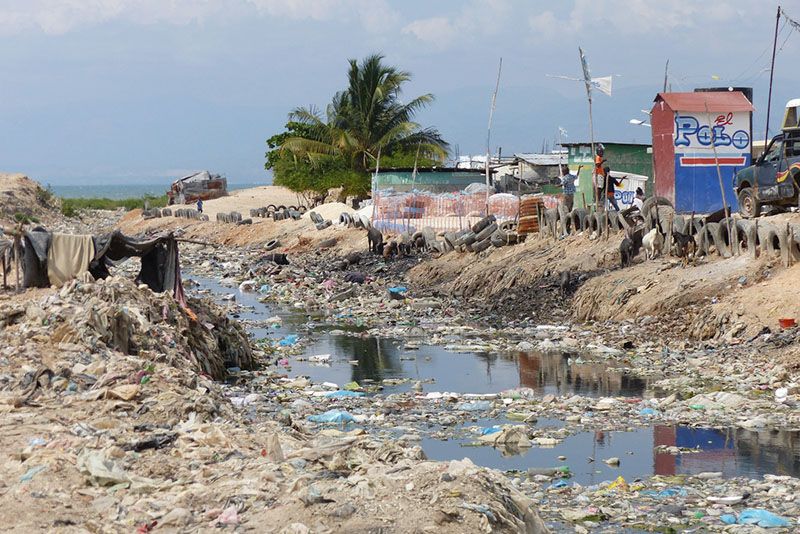
Moreover, cholera, a disease that also feeds off poor sanitation, has become endemic in Haiti since the aftermath of the devastating 2010 earthquake with seasonal peaks that regularly trigger specific emergency interventions.
For example, every month anywhere from 10 to 70 patients need care in the cholera tent of MSF’s emergency medical center of Martissant.
As a response, MSF launched an ambitious project meant to benefit not only the Martissant residents but also guide the organization’s “watsan” practices elsewhere.
Teams roamed the slum for six months, first to treat communal water sources across the slum against the cholera vibrio; and second to kill both mosquitoes adults and larvae by spraying 350 public places such as churches, schools, and gullies that crisscross the neighborhood.
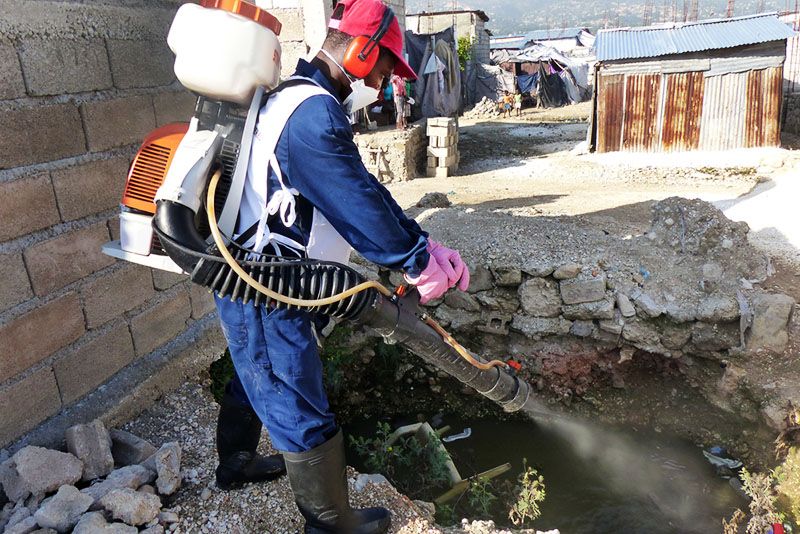
Some new mosquito traps were used to allow the team to better analyze the mosquito population and therefore adapt the response – hence the mosquitoes freezing to death in the kitchen fridge, destined to be counted and observed under the microscope.
One of those traps works by attracting the mosquito thanks to a cartridge that replicates the human smell.
“One day I came to the office and it smelled so bad I thought there was a dead cat somewhere. But no, the staff had just stored all of our cartridges in my office. We humans just don’t realize how bad we smell,” jokes Pierre Trbovic.
But more than technology, human touch was the cornerstone of the project.
Martissant is a difficult place to live, and a difficult place to work. Few public services reach the destitute community and urban gangs keep a tight grip on the social network.
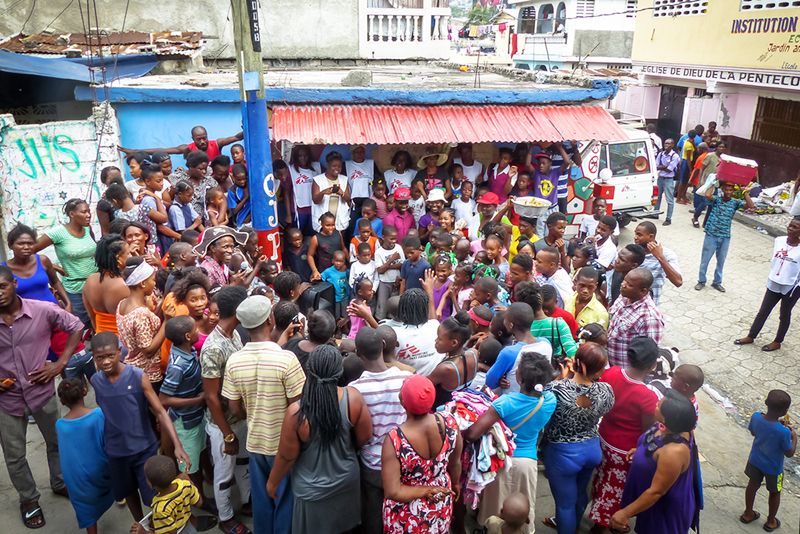
However, MSF is already well known and accepted here as it has been offering 24/7, free emergency care to an average of 4.300 patients a month since 2007.
The Marengwen initiative, designed to complement the other medical activities in the slum, also helped the organization remain very visible by sensitizing in the neighborhood: in addition to the treatment of public areas, outreach teams talked to community leaders and knocked on every single door – 40 to 50.000 houses – to teach people how to identify and destroy mosquito breeding places and treat their water with locally available chlorine.
This network developed during the project will help MSF to improve its emergency preparedness in case of an outbreak of cholera and other epidemics diseases.
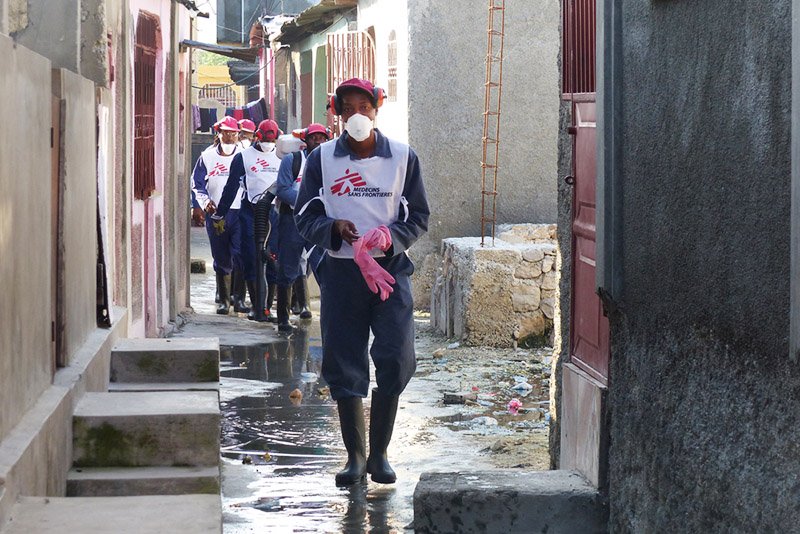
It was a huge task, requiring 110 MSF staff, supported by 35 Haitian staff from the ministry of health working as community liaisons.
The endeavor was all the more complicated by the fact that maps of Martissant were few and far between, and of varying – mostly low – quality.
“We had to teach people from the area how to read a map, so they were able to show us the areas where we should treat water, or could organize large scale meetings with the community.
They basically rediscovered their very own streets in two dimensions! Our first lesson learned: we would have saved precious time if we could equip each staff going door-to-door with individual tablets to encode data. Well, we learn by doing”, explains Pierre Trbovic.
In order to fully control a mosquito population in such an open, urban environment these activities should be repeated regularly.
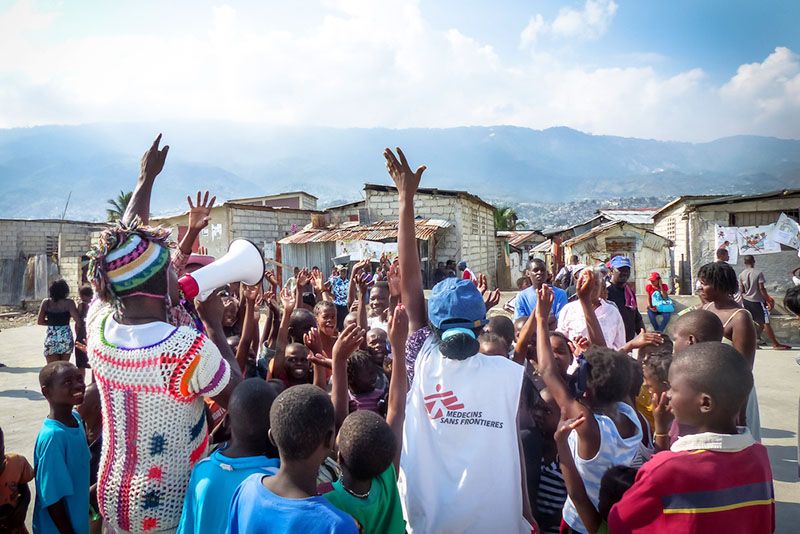
For the moment, community outreach activities continue in Martissant through staff from the ministry of health as well as others working as community liaisons, though not on the same scale.
The first concrete outcome though will come when the activities of operational research are finalized.
Thanks to this research MSF will be better equipped to adapt similar activities in the future, in Haiti or elsewhere.
Find out more about MSF's work in Haiti.
